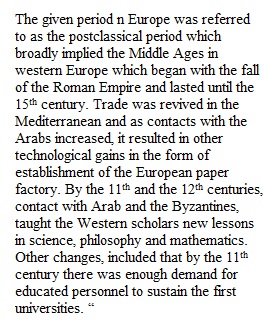


Q Give examples of at least two social, political, and economic changes taking place across Europe in general by the 11th century. The term "Feudalism" is a problematic, and oversimplified, term often used to describe the social hierarchy that developed in Europe as society became more stratified. What were some of the ways in which social structures across Europe became more rigid by the 10th and 11th centuries? Why is Manorialism a more accurate term than Feudalism to describe the social structure of Europe at this time?By the 11th and 12th centuries, how had the power of the Catholic Church increased across Europe o According to the Dictates of the Pope, what were the limits on the Pope's power? Which line stands out to you most in the excerpt in suggesting the tremendous power of the Pope? Utilizing your texts and the video on the Crusades, what motivations did different leaders and groups in Europe have in responding enthusiastically to Pope Urban II's call to Crusade in 1095. In your opinion, why do you think Pope Urban called for the first Crusade, rather than just sending some troops to help the Byzantine Empire?As you read the primary source, Christian and Muslim Perspectives of the sacking of Jerusalem in 1099, I would like you to give examples of at least three similarities and three differences between the two accounts given in the document. What kind of a feel do you get for the overall tone of each account, and what do they both tell us about the events that occurred in Jerusalem?
View Related Questions